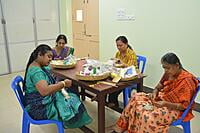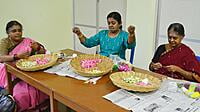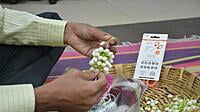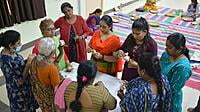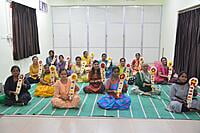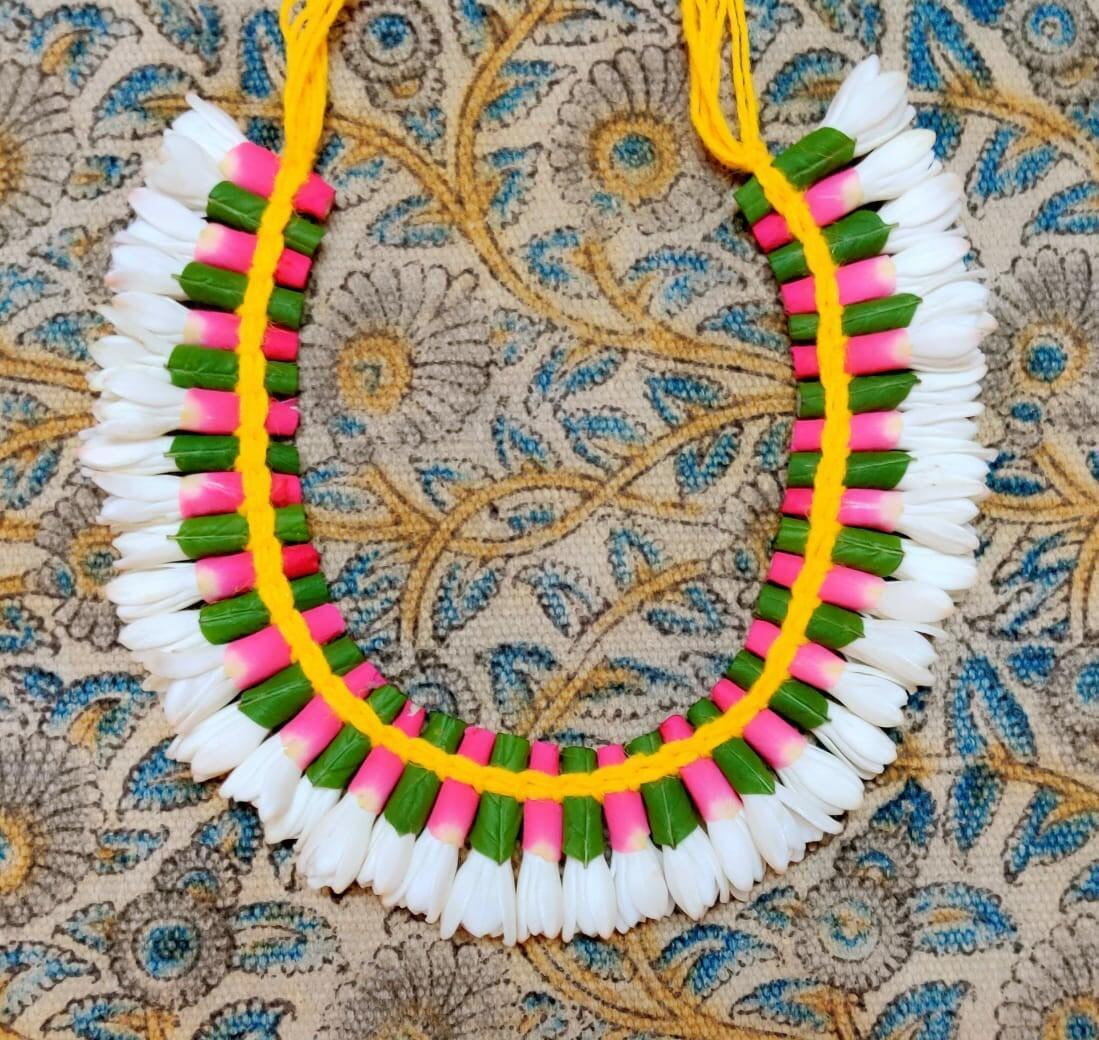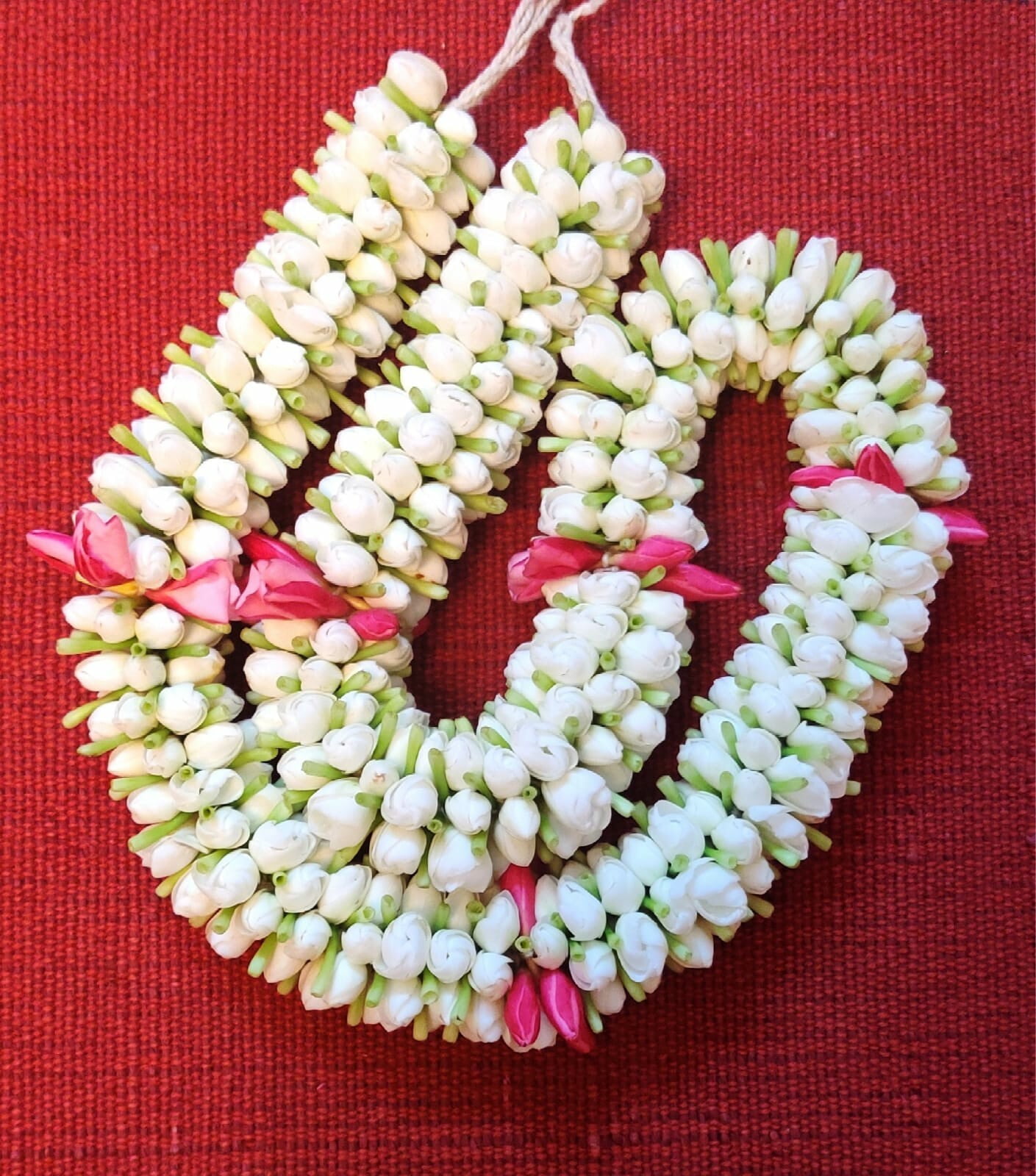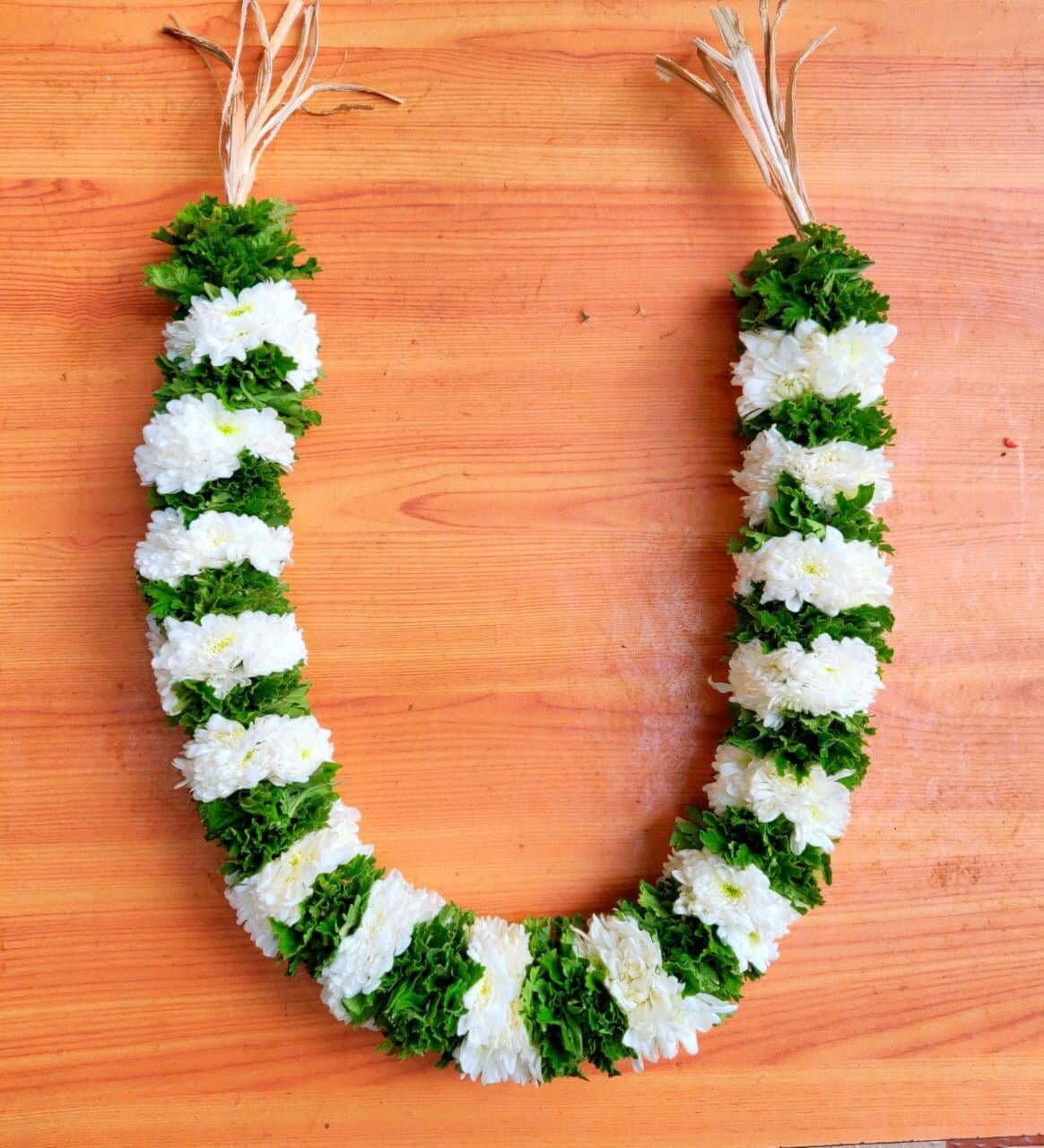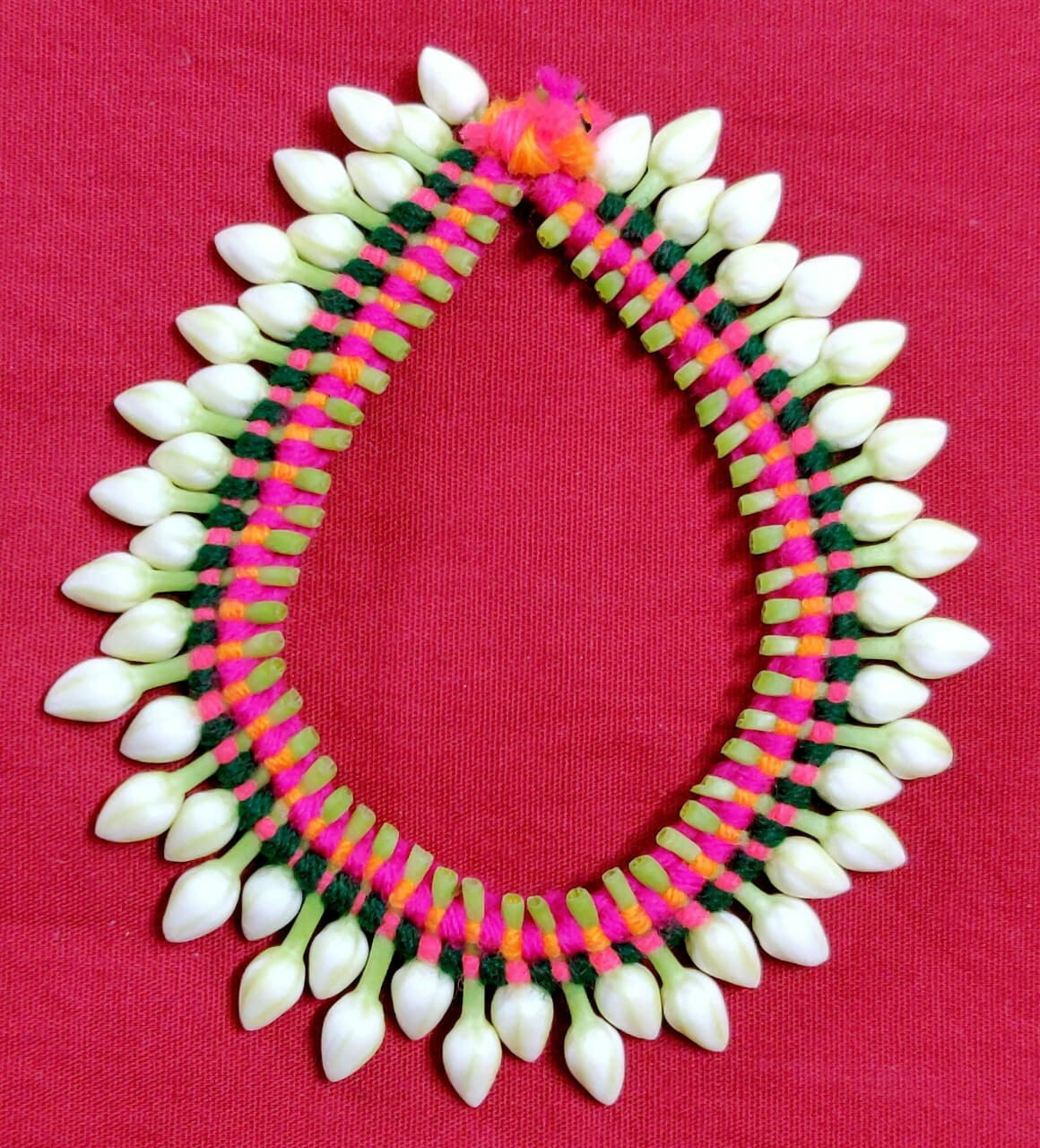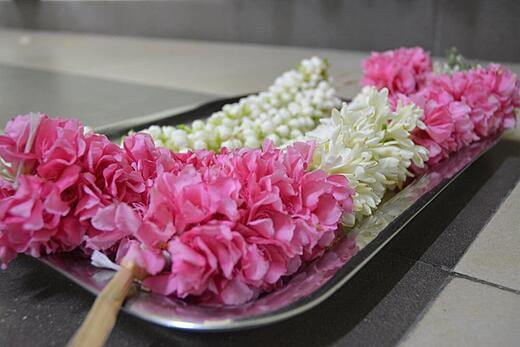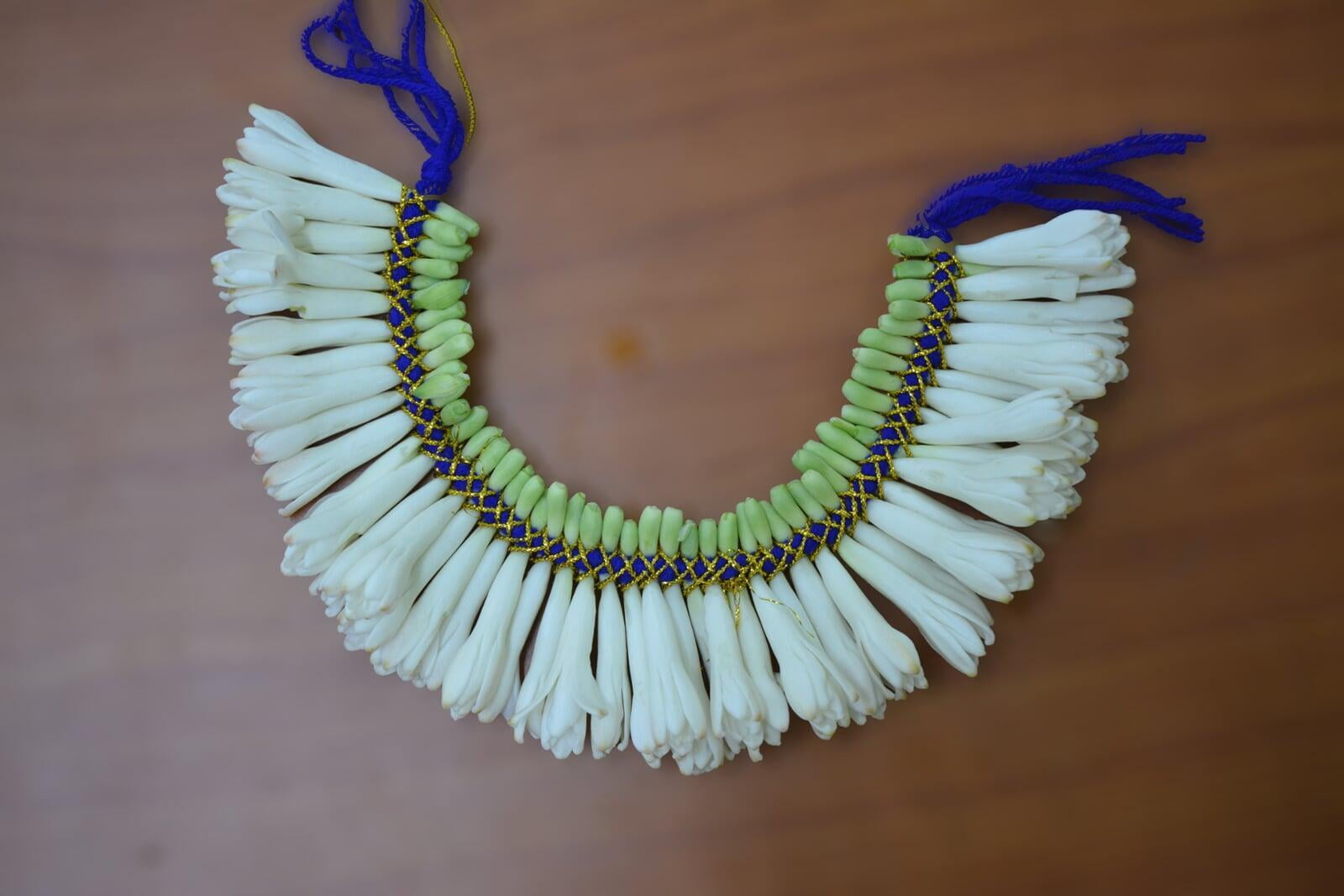Flowers stand an important place in Indian culture and lifestyle since time immemorial. They reflect religion, spirituality, fashion, tradition, joy, grandeur, art and all auspiciousness. There is no worship, ritual or festival in India that is complete without flowers and garlands.
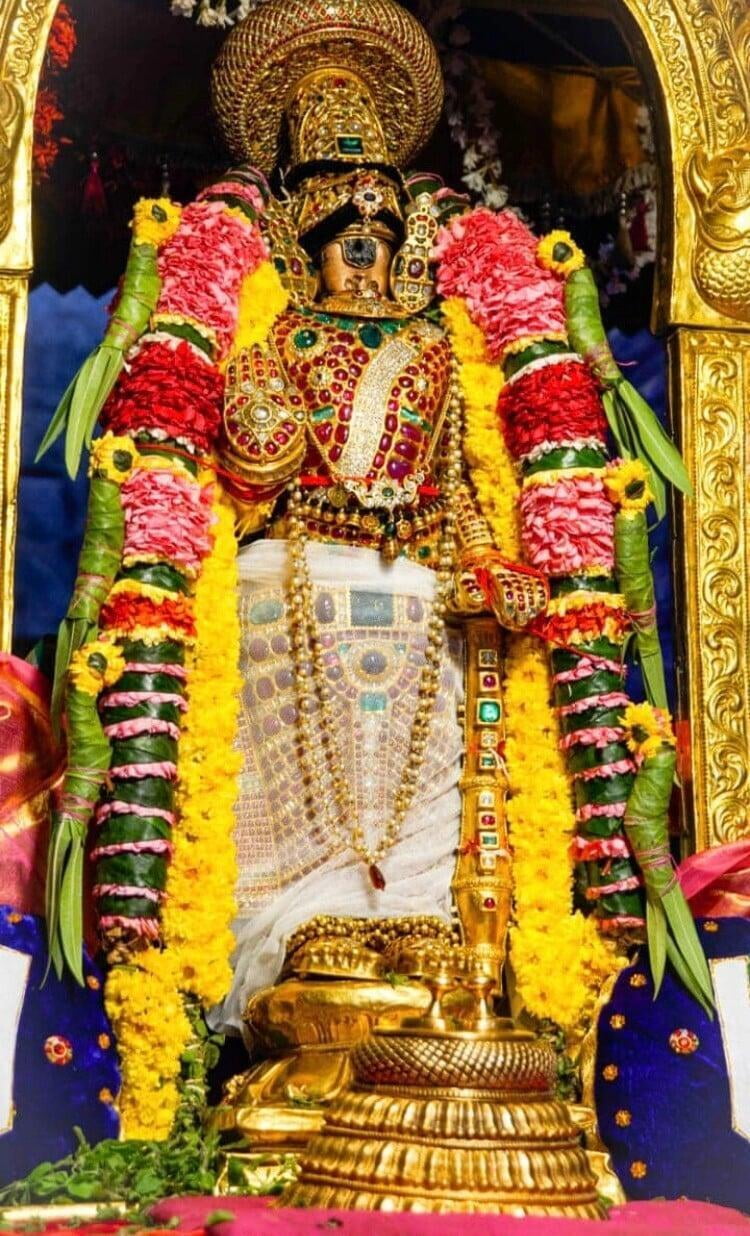
Garland making is no simple skill! The art of stringing flowers into garlands in different patterns and methods is indeed listed as one among the 64 praised art forms. This fragrant art, not merely contributes to aesthetic value, but voices the rich history and heritage of this country. As we stroll around the various temple towns of India, we learn that it is not just flowers that are strung together, but volumes of history, culture, tradition, and spirituality that are weaved together in a garland. Many scriptures of Bhakti and worship, laud this art form as a sacred service (Pushpa Kainkarya) to God that aids one’s spiritual progress. Indeed, there are exclusive ancient treatises like the Pushpachintamani, Pushpa Maahaatmyan, Parijatamanjari, PupphajoniSattha, etc that present to us a tabulated data of which type of flowers and garlands are significant to specific deities. There are certain patterns of garlands adorned to deities at many ancient temples even today, in reverential remembrance of historic incidents. Like the Srirangam’s Killi Maalai, the type of garland offered to deities during important occasions divulge glorious legends of the temple’s history. Further, along with being an eminent symbol of religion and spirituality, flower garlands have also been a mandatory daily dressing accessory used by men and women of ancient India. Historic texts like the Sangam literature describe the kind of flowers and garlands worn by people during different activities, moods and purposes.
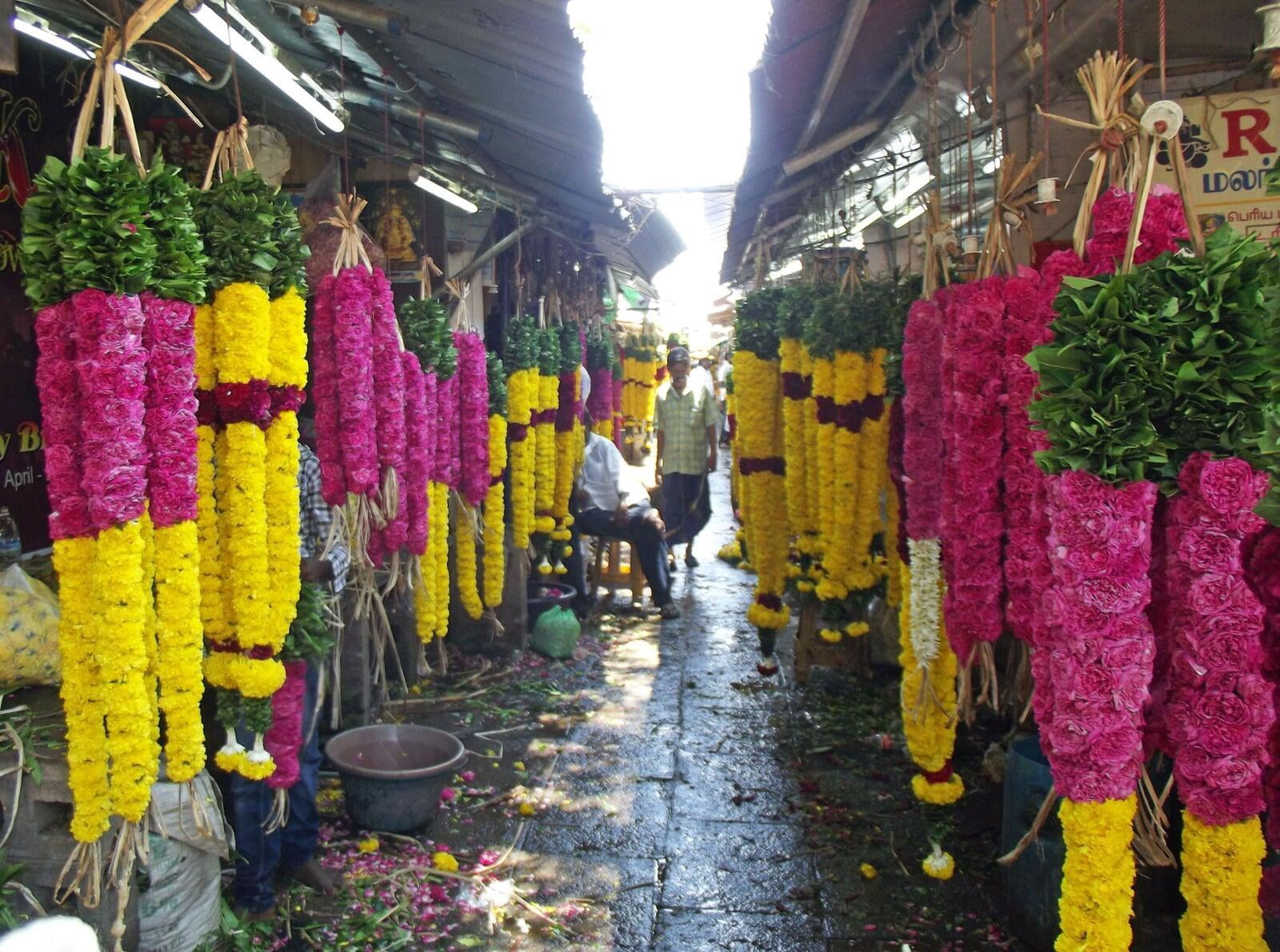
Despite its matchless elegance and prominence in India, this important art form, which had once been a daily routine at homes, is seen to be gradually fading away in today’s fast paced modern lifestyle. Most of us today are indeed blind to the richness and charm of this beautiful skill, to the extent that we almost fail to even recognize garland making as an ‘art form’.How many of us today are even aware of India’s glorious traditional garland varieties like the Killi Malai, Dindu Malai, Poo Porvai, Jadai, Veni, Manikkam Malai, Uruttukattu, Pattaikattu, Kadhambam, etc? Have we ever stopped to watch a flower vendor’s artistry in weaving a garland? To us, he is a mere business man; we fail to see the fine artist in him! Which other country houses such an exquisite and vast form of art specializing solely in flowers?
Impelled to encourage India’s traditional flower artisans and reaching this sacred art form to one and all, the VIVEKANANDA CULTURAL CENTRE has planned the MALA GRATHANA (garland making) workshop with skilled garland makers from various parts of the country to train participants in different traditional methods of the skill.
Garland stringing, as many other classical art forms, is also reported to be very meditative and therapeutic. It enhances mental focus, concentration, and also fuels creativity and imagination, thus becoming a very good exercise for the brain and mind. Many doctors and psychiatrists today declare that this skill, in addition to being a good stress buster, has proved to be very helpful for kids and adults with disabilities like dyslexia, anxiety, depression and other mental illness.
With the limbs, sense organs and brain having to work in synchrony, these traditional skills like drawing Kolam, stringing garlands, etc that we have inherited over generations as a part of our splendid culture and heritage, pave way to all round development in one’s life. It is a popular saying that a small change in daily habits can bring great improvement to overall character and personality. Handling flowers instils in one, tenderness and patience. If practicing this relaxing art, can turn us into soft and pleasant individuals, what more reward do we need! Hence, it is time we get back to our roots and explore our traditional value system backed up with such great art forms. We welcome you all to come, join and joyfully learn this sacred art form at the holy ambience of Vivekananda House.
8:30 am to 5:30 pm
Sat & Sun
16 years and above
Fees: ₹1500
All materials will be provided.
Tea and Lunch Served
Workshop Contains
A special one-day workshop workshop (Advanced level)
8:30 am to 5:30 pm
Saturday
16 years and above
Fees: ₹ 750
All materials will be provided.
Tea and Lunch Served
